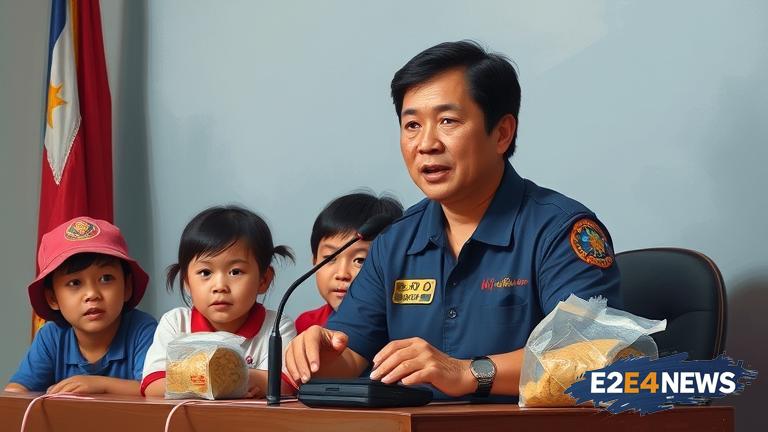The Department of Social Welfare and Development (DSWD) has been at the forefront of providing relief to families affected by disasters in the Philippines. Recently, the DSWD chief reiterated the importance of family food packs in helping these families recover from the aftermath of disasters. The family food packs are designed to provide a sufficient amount of food for a family of five for two to three days. The packs typically include rice, canned goods, noodles, and other non-perishable items. The DSWD chief emphasized that the family food packs are not just a temporary solution, but also a way to help families get back on their feet. The department has been working closely with local government units and other stakeholders to ensure that the family food packs reach the most affected areas. The DSWD chief also highlighted the importance of proper distribution and monitoring of the family food packs to ensure that they reach the intended beneficiaries. The department has established a system to track the distribution of the family food packs and to monitor the feedback from the beneficiaries. The DSWD chief also encouraged the public to donate to the department’s disaster relief efforts, emphasizing that every contribution counts. The family food packs are just one of the many ways that the DSWD is providing support to disaster-hit families. The department is also providing other forms of assistance, such as shelter, clothing, and psychological support. The DSWD chief emphasized that the department’s goal is to provide holistic support to affected families, not just to provide temporary relief. The department is working closely with other government agencies, non-governmental organizations, and private sector partners to achieve this goal. The DSWD chief also acknowledged the challenges faced by the department in providing relief to affected families, including limited resources and accessibility issues. However, the chief emphasized that the department is committed to doing its best to provide support to those in need. The family food packs are a crucial part of the department’s disaster relief efforts, and the DSWD chief is urging the public to support these efforts. The department is also exploring ways to improve the family food packs, including adding more nutritious food items and making them more accessible to affected families. The DSWD chief emphasized that the department is committed to transparency and accountability in its disaster relief efforts, and that it is working to ensure that all donations and resources are used effectively. The department is also providing regular updates on its disaster relief efforts, including the distribution of family food packs. The DSWD chief encouraged the public to stay informed about the department’s efforts and to provide feedback and suggestions on how to improve the family food packs and other forms of assistance. The department is committed to working with the public and other stakeholders to provide the best possible support to disaster-hit families. The family food packs are an important part of this effort, and the DSWD chief is urging everyone to support this initiative. The Philippines is prone to natural disasters, and the DSWD is working to ensure that it is prepared to respond to these disasters. The department is also working to reduce the risk of disasters and to promote disaster risk reduction and management. The DSWD chief emphasized that the department’s goal is to provide support to affected families, while also working to prevent disasters from occurring in the first place. The family food packs are just one part of the department’s comprehensive approach to disaster relief and management.
